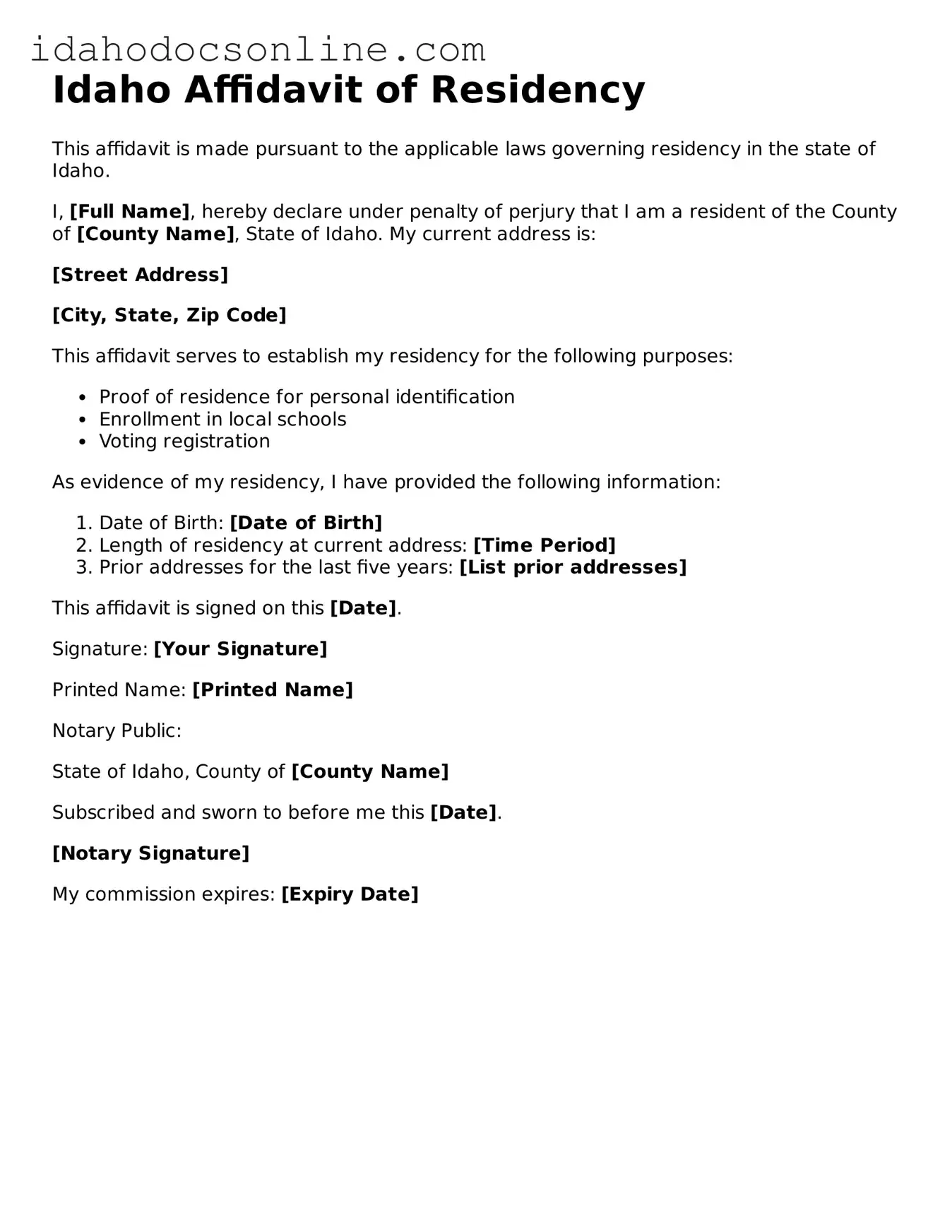Free Affidavit of Residency Form for Idaho
The Idaho Affidavit of Residency form is a legal document used to verify an individual's residence in Idaho. This form is often required for various purposes, including voting registration and eligibility for certain state benefits. Understanding how to properly complete this affidavit is essential for ensuring compliance with state regulations.
To begin the process, fill out the form by clicking the button below.
Fill Out Your Document

Free Affidavit of Residency Form for Idaho
Fill Out Your Document
Need speed? Complete the form now
Complete Affidavit of Residency online — edit, save, download with ease.
Fill Out Your Document
or
Free PDF
